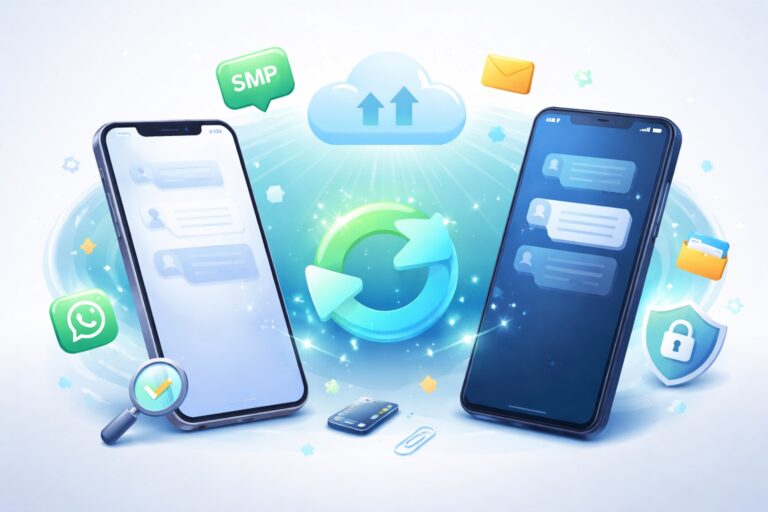Anúncios
In the evolving landscape of artificial intelligence, ChatGPT has emerged as a powerful tool accessible to anyone with an internet connection. Built on advanced natural language processing technology, this conversational AI is revolutionising the way people work, study, and solve everyday problems. Whether you’re a seasoned professional or someone who’s just curious about AI, ChatGPT offers something of value.
From content creation and business planning to academic support and casual conversations, the applications of ChatGPT are incredibly broad. The key, however, lies in understanding how to use it effectively—and for what purposes. Misuse or underutilisation often stems from not knowing the capabilities of the tool or how to prompt it efficiently.
Anúncios
If you’ve ever wondered how to get the most out of ChatGPT in your personal or professional life, this guide was made for you. We’ll walk through practical, step-by-step ways to integrate ChatGPT into your daily routines—no tech expertise required. Let’s explore how this AI assistant can support your goals and simplify your tasks.
Understand what ChatGPT is and how it works
Before diving into applications, it’s essential to grasp what ChatGPT actually does. Developed by OpenAI, ChatGPT is a large language model that uses deep learning to understand and generate human-like text based on user input. It doesn’t think like a human, but it has been trained on a vast amount of data to provide relevant, contextual, and accurate responses.
Key features include:
- Conversational memory in a single session
- Ability to summarise, translate, write, code, and answer questions
- Integration with tools and plugins (in premium versions)
- Accessibility via web browsers and mobile apps
Understanding its basic functionality helps users craft better prompts and achieve more accurate results.
Using ChatGPT for digital marketing tasks
For marketers in South Africa and beyond, ChatGPT is an invaluable assistant. It can speed up content creation, brainstorm campaign ideas, and even analyse consumer behaviour.
Here are a few marketing use cases:
- Write blog posts or landing page copy
- Create ad variations for platforms like Google Ads or Meta
- Generate social media captions for multiple audiences
- Translate messages into different languages for broader reach
- Analyse audience trends using uploaded data (available in premium versions)
Tools like these reduce costs and improve efficiency—especially valuable for small teams and agencies.
Enhancing academic and student productivity
Students at university, college, or even high school can benefit greatly from ChatGPT’s structured support. It’s not about outsourcing learning but enhancing it.
Key student applications include:
- Summarising long readings or articles
- Creating study guides or flashcards
- Brainstorming ideas for essays or projects
- Explaining complex concepts in simpler terms
- Practising language skills in conversational mode
For South African students managing studies in multilingual environments, ChatGPT can also help translate content between English, Afrikaans, Zulu, or other local languages.
Boosting small business efficiency with ChatGPT
Entrepreneurs and freelancers often juggle multiple roles, and time is always in short supply. ChatGPT can become an efficient business partner.
Popular small business uses:
- Writing client emails and proposals
- Creating business plans and pitch decks
- Generating invoices or quotes (with templates)
- Drafting job descriptions or employee handbooks
- Developing product descriptions for online stores
For example, a local artisan selling on Takealot or Etsy can use ChatGPT to write compelling product copy, saving both time and money.
Assisting educators in lesson planning and more
Teachers in South Africa face varied classroom environments with different needs. ChatGPT can support educators by simplifying routine tasks.
Useful applications for teachers:
- Designing lesson plans around CAPS curriculum topics
- Creating quiz questions and answer keys
- Rewriting content for different comprehension levels
- Drafting parent letters or classroom announcements
- Getting inspiration for inclusive classroom activities
By automating repetitive work, educators can focus more on student engagement and less on paperwork.
Everyday personal uses of ChatGPT
Beyond work and academics, ChatGPT is a practical companion in everyday life.
Personal use examples:
- Meal planning based on dietary needs or local ingredients
- Writing heartfelt messages for birthdays or events
- Creating travel itineraries for trips within SA or abroad
- Helping write or polish CVs and cover letters
- Offering advice on budgeting, wellness, or hobbies
Whether you’re a parent planning school lunches or someone looking to start a side hustle, ChatGPT can help organise your daily life more efficiently.
Tips for optimising your ChatGPT experience
To get the most out of ChatGPT, follow these best practices:
- Be specific with your prompts (e.g. “Write a 100-word summary of a business plan”)
- Break down complex tasks into steps
- Use follow-up questions to refine results
- Save useful prompts for future reuse
- Regularly experiment with different use cases
The more you use ChatGPT, the better you’ll understand how to direct it effectively. It’s like training a smart assistant—your clarity fuels its performance.
Common mistakes to avoid when using ChatGPT
Even the best tools can be misused. Avoid these common pitfalls:
- Relying entirely on AI for critical decisions
- Assuming the AI is always factually correct
- Providing vague or incomplete prompts
- Ignoring proofreading—especially in professional writing
- Overusing it to the point of creativity loss
ChatGPT is a tool, not a replacement for human insight. Use it as a collaborator, not a crutch.
Conclusion
Whether you’re a student, a business owner, or simply someone curious about AI, ChatGPT can become an essential tool in your daily routine.
By understanding its potential and learning how to use it effectively, you empower yourself to work smarter—not harder. As technology continues to evolve, those who adapt will find themselves ahead of the curve, not behind it.
Frequently Asked Questions (FAQ)
1. Is ChatGPT available in South Africa?
Yes, ChatGPT is accessible via web and mobile browsers in South Africa, including both free and premium versions.
2. Can I use ChatGPT offline?
Currently, ChatGPT requires an internet connection to function. Offline access is not yet supported.
3. Is it safe to use ChatGPT for work tasks?
Yes, as long as you avoid inputting sensitive or private information. Always verify AI-generated content before publishing or sharing.
4. How do I write better prompts?
Be specific, include context, and use action verbs. For example: “Write a 150-word introduction to a product for teenagers.”
5. Can ChatGPT replace human creativity?
No. It can assist and enhance creative work, but it should not replace your own ideas, insights, or decision-making.



